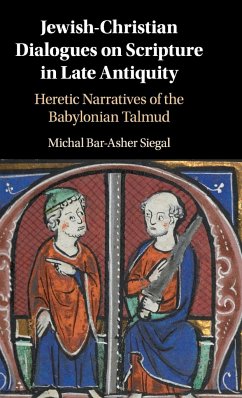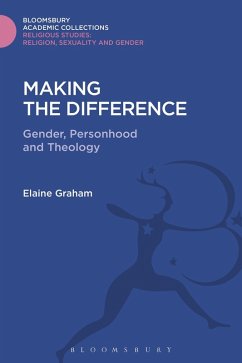
Defining Jewish Difference
From Antiquity to the Present
Versandkostenfrei!
Versandfertig in 1-2 Wochen
55,99 €
inkl. MwSt.

PAYBACK Punkte
28 °P sammeln!
This book traces the interpretive career of Leviticus 18:3, a verse that forbids Israel from imitating its neighbors. Beth A. Berkowitz shows that ancient, medieval and modern exegesis of this verse provides an essential backdrop for today's conversations about Jewish assimilation and minority identity more generally. The story of Jewishness that this book tells may surprise many modern readers for whom religious identity revolves around ritual and worship. In Leviticus 18:3's story of Jewishness, sexual practice and cultural habits instead loom large. The readings in this book are on a micro-...
This book traces the interpretive career of Leviticus 18:3, a verse that forbids Israel from imitating its neighbors. Beth A. Berkowitz shows that ancient, medieval and modern exegesis of this verse provides an essential backdrop for today's conversations about Jewish assimilation and minority identity more generally. The story of Jewishness that this book tells may surprise many modern readers for whom religious identity revolves around ritual and worship. In Leviticus 18:3's story of Jewishness, sexual practice and cultural habits instead loom large. The readings in this book are on a micro-level, but their implications are far-ranging: Berkowitz transforms both our notion of Bible-reading and our sense of how Jews have defined Jewishness.














